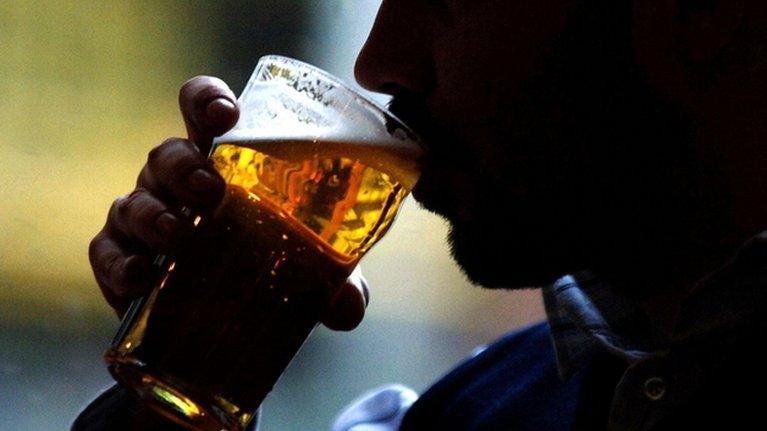Bars and restaurants 'hit by new drink-drive limit'
- Published
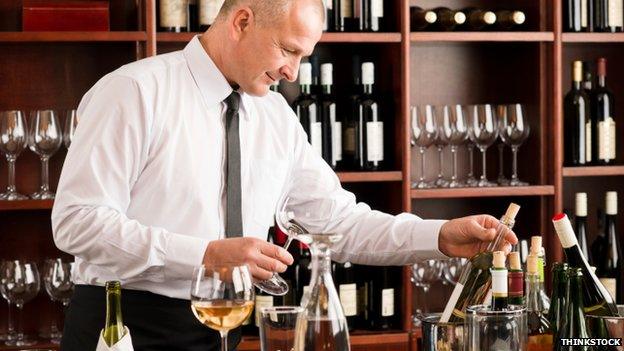
Bars are seeing a changing pattern of spending, the Bank of Scotland said
The lowering of the legal drink-drive limit in Scotland has affected business in the hospitality sector, according to a new report.
The Bank of Scotland said restaurants and bars were seeing "a changing pattern of spending" because of the new law, which came into force in December.
The comments came in the bank's latest survey of Scottish purchasing managers.
Its PMI report indicated a slight fall in overall service sector activity last month.
The new legislation on drink-driving reduced the legal alcohol limit from 80mg to 50mg in every 100ml of blood.
In February, purchasing consortium Beacon published a survey of hospitality sector customers that suggested Scottish businesses saw bar sales drop by up to 60% in the two months after the introduction of the new limit.
'Marginal growth'
Looking at the wider private sector economy in Scotland, the PMI report said there was marginal growth in manufacturing output.
However, manufacturing exporters reported they had been affected by the falling euro.
In contrast, there was a modest increase in new business for Scottish firms with companies reporting "some dissipation of the uncertainty that has plagued client decision-making since the start of the year".
The Bank of Scotland PMI - which measures changes in manufacturing and services activity - registered 49.4 during March, down from 50.2 in the previous month.
Any figure below 50 suggests economic contraction.
It is the second time in the past three months that a fall in output has been recorded, although the latest decline was marginal.
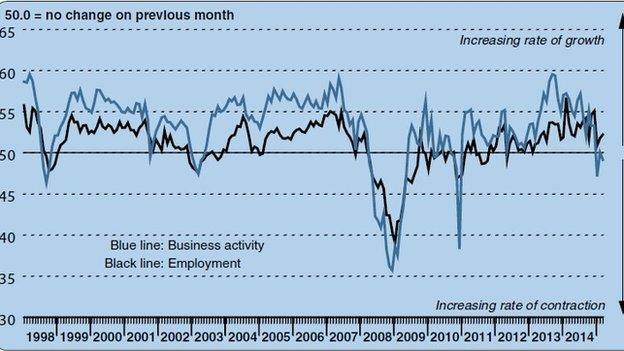
The Bank of Scotland PMI measures changes in manufacturing and services activity
Manufacturers, while signalling a fractional increase in output, recorded a fall in new orders for a third month in succession.
Survey respondents suggested the drop reflected subdued demand from the oil and gas industry.
In contrast, service providers recorded modest growth as economic conditions improved.
The latest data suggested modest growth overall in employment, although business services companies indicated a particularly strong rise.
Bank of Scotland chief economist Donald MacRae said: "Manufacturing exporters have been affected by the falling euro while services businesses in hospitality are seeing a changing pattern of spending resulting from the lowered alcohol limit while driving.
"All are affected by subdued business confidence associated with the fall in the price of oil and the bad winter weather.
"But recovery is on the way with levels of new business increasing, employment rising in all sectors and the oil price up 20% from January's low."
- Published5 December 2014
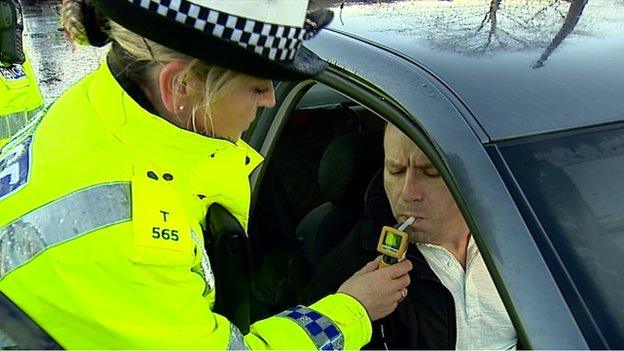
- Published24 March 2015

- Published16 March 2015
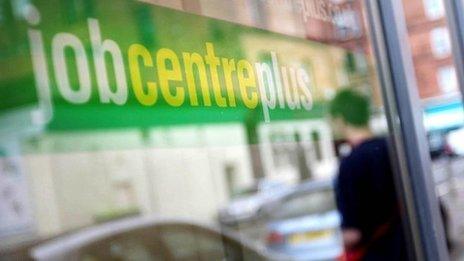
- Published3 December 2014
